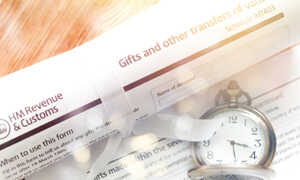Six in ten retirees unaware of IHT thresholds

A growing number of estates are expected to be liable for Inheritance Tax (IHT) in the coming years as a result of frozen thresholds and increasing property prices, yet many people aren't aware of the current thresholds and the IHT rules.
In a survey of 1,050 UK adults aged 55+ who are retired or semi-retired, retirement specialist Just Group found that 59% did not know what the threshold is for the value of an estate to pay IHT and a further 50% said they did not have a clear understanding of the rules.
For estates with a value above the basic IHT threshold, there are several planning methods that will help make sure you pass on as much of your wealth as you can to your loved ones.
Spousal and gift exemptions and charitable donations, for example, can legally reduce or entirely mitigate IHT liability.
Inheritance Tax: the basics
IHT is a tax on the property, money and possessions of someone who has died.
There's normally no Inheritance Tax to pay if either:
- the value of your estate is below the £325,000 threshold
- you leave everything above the £325,000 threshold to your spouse, civil partner, a charity or a community amateur sports club
If you give away your home to your children or grandchildren, your threshold can increase to £500,000.
The standard rate of IHT is 40%, and this is charged only on the part of your estate that's above the threshold.
A reduced rate of 36% may apply on some assets if you leave 10% or more of your estate's net value to charity in your will.
Frozen starting thresholds
At £325,000, the starting threshold for IHT (the nil rate band) has been unchanged since 2009. If it had been adjusted by inflation since then, it would now be nearly £500,000, Just Group said.
The residence nil rate band, introduced in 2017, currently stands at £175,000 and has not been increased since 2020-21.
Both bands are set to remain frozen for almost another five years until April 2028. Meanwhile, the average UK property price has risen by 30% in the past five years, from £218,642 in April 2017 to £283,871 in April 2023. As a result, more estates are becoming liable for IHT.
The UK government estimated in last November's Autumn Statement that an additional 13,400 estates would pay IHT in the seven years to 2028 as a result of the frozen starting thresholds. In the Spring Budget, this estimate was revised up by 36,000 to 49,400 -- a near four-fold increase.
IHT receipts set to reach £7.2bn
HMRC's latest published figures for Inheritance Tax receipts reveal that £3.9bn was collected through the first half of the 2023/23 financial year. This is an 11% increase compared to the £3.5bn paid in IHT in the first half of the previous year, setting the Treasury on course for another year of record receipts.
IHT payments are currently forecast to amount to £7.2bn this financial year, and as much as £8.4bn by 2027/28.
Understand your options
"The pincer movement of rising property prices and frozen tax thresholds means that more and more families are getting caught in the Inheritance Tax trap," said Stephen Lowe, group communications director at Just Group.
If you're planning to pass on an inheritance to your loved ones, it's worth making sure you understand whether the IHT rules will affect these plans, and how to mitigate the impact if they do, Lowe explained.
He added: "Professional, regulated advice can also help people work out the total value of their estate, calculate how much Inheritance Tax those inheriting the estate may be likely to owe and understand what options they have to minimise a future tax bill."
Posted by Fidelius on October 30th 2023

